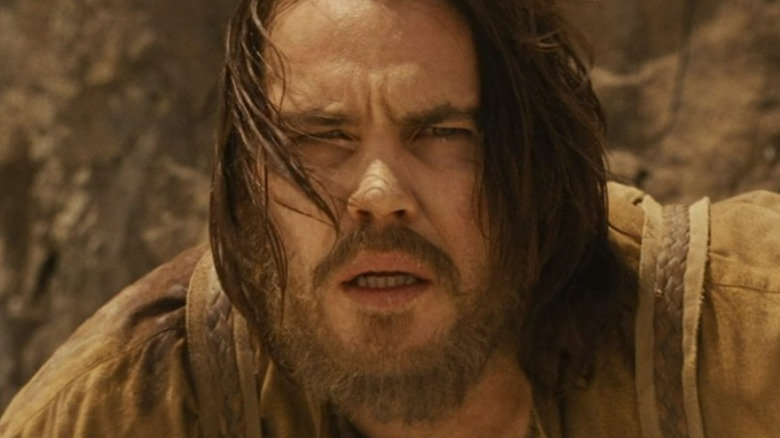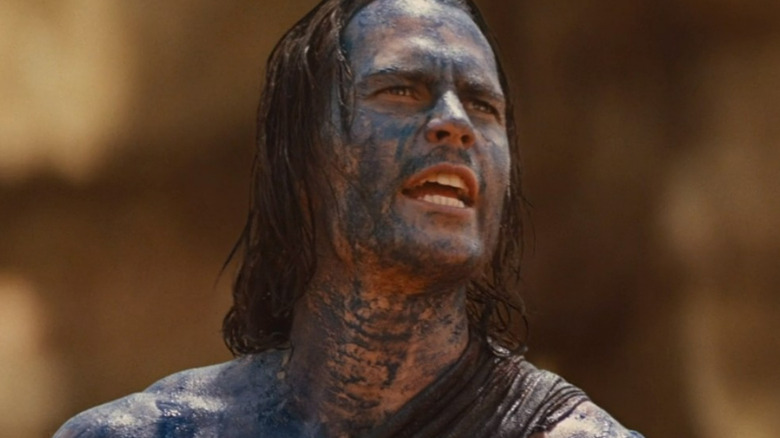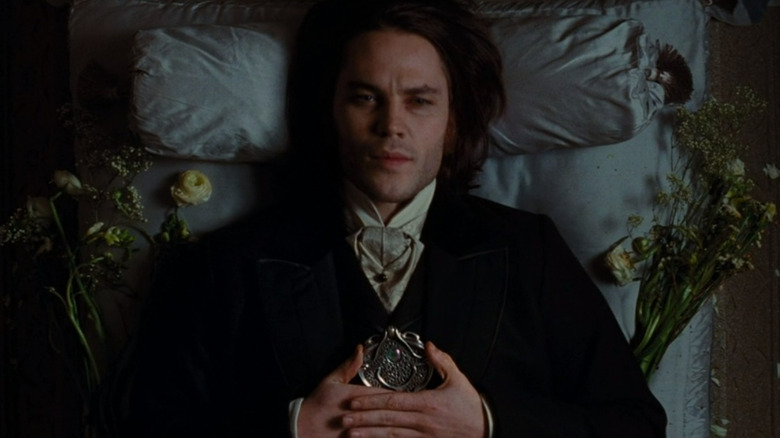Why John Carter Really Flopped
Let's not mince words ... "John Carter" was an okay movie. Released in 2012 by Disney and based on a series of books written by Edward Rice Burroughs — yes, the same author whose work led to Disney's "Tarzan" — almost exactly a century prior, the science fiction blockbuster film was intended to be a box office epic, perhaps on the same level as "Star Wars." Instead, "John Carter" failed to charm audiences into spending their hard-earned cash, resulting in an unprecedented loss for the Mouse totaling somewhere near the 200 million dollar mark (according to Bomb Report).
Most of the key elements for a resounding success were present, like a famous author's work, a popular genre, a big budget, a strong if not comparably untested cast, etc. So, what happened here? Where did the recipe break down? There's no quick answer, but the last decade has seen a not insignificant number of theorists taking a stab at a satisfying solution to one of Disney's largest failures. Let's take a look at what the smart people are saying.
The movie gambled on too many unfamiliar names
While various sources, such as The Week and The Wrap, cite different causes for the cinematic catastrophe, it seems as if everyone agrees that "John Carter" was ultimately dead on arrival. Again, before we dive into the following narrative, it's important to note that this isn't necessarily an endorsement to bash artists — it's just not that kind of article. If anything, this is an autopsy. With that in mind, the film undeniably lacked star power. While the cast boasted the high-profile talents of Mark Strong, Willem Dafoe, and Bryan Cranston (check the IMDb page for more), these artists were not cast in center-stage roles. No, those roles were given to comparatively unknown actors such as Taylor Kitsch and Lynn Collins. To be clear, bringing in new or less-known talent is a good thing — it just doesn't inherently lead to financial gain the same way that leaning on popular familiarity does, and this film entirely revolved around Kitsch's titular role.
Further, the Edgar Rice Burroughs novels weren't and aren't mainstays in the modern zeitgeist, so when Disney marketed the film by teasing the title during a Super Bowl ad (as seen here, on YouTube), viewers were left scratching their heads. For a blockbuster to function, someone in the forefront of the mix has to have social currency. The more recent science fiction epic "Dune" combatted this same issue by drowning the material in celebrity performers, a move that dragged younger audiences into an adaptation of a story from the 1960s. In comparison, "John Carter" struggled against a far longer chronological gap with far less prevalent performers.
John Carter might've been doomed from the start by the director
Should either of these interwoven factors be ignored, then the final product has to stand solely on its own merit, and, as we mentioned earlier, "John Carter" was okay. It's by no means horrible, nor is it exemplary: it's simply adequate. This is reflected by its Rotten Tomatoes scores, which are, across the board, middling. According to Deadline, director Andrew Stanton was overly faithful to the source material — to the film's detriment, even. As far as criticism goes, this is wild because the general consensus so often leans the other way; that is to say, filmmakers ignore the adaptation's origins and create an abomination in its place.
Whether Stanton's faith to the source material is indicative of an earnest desire to represent the story or a lackluster creative mind is not clear. In fairness, these aren't even the only options — simply the ones we feel are most likely. That being said, the results of Stanton's artistic direction (and casting; the aforementioned The Wrap article notes that Taylor Kitsch was entirely Stanton's decision) indicate that, regardless of intent, a different leader might have been required to shepherd "John Carter" to victory.
For now, that's where the story ends. In 2014, as noted by Entertainment Weekly, Disney lost the rights to the "John Carter" franchise. Edgar Rice Burroughs Inc has kept the property away from other studios so far, but that doesn't mean they won't try again. It's not impossible to make "John Carter" work — it simply has yet to be done.


